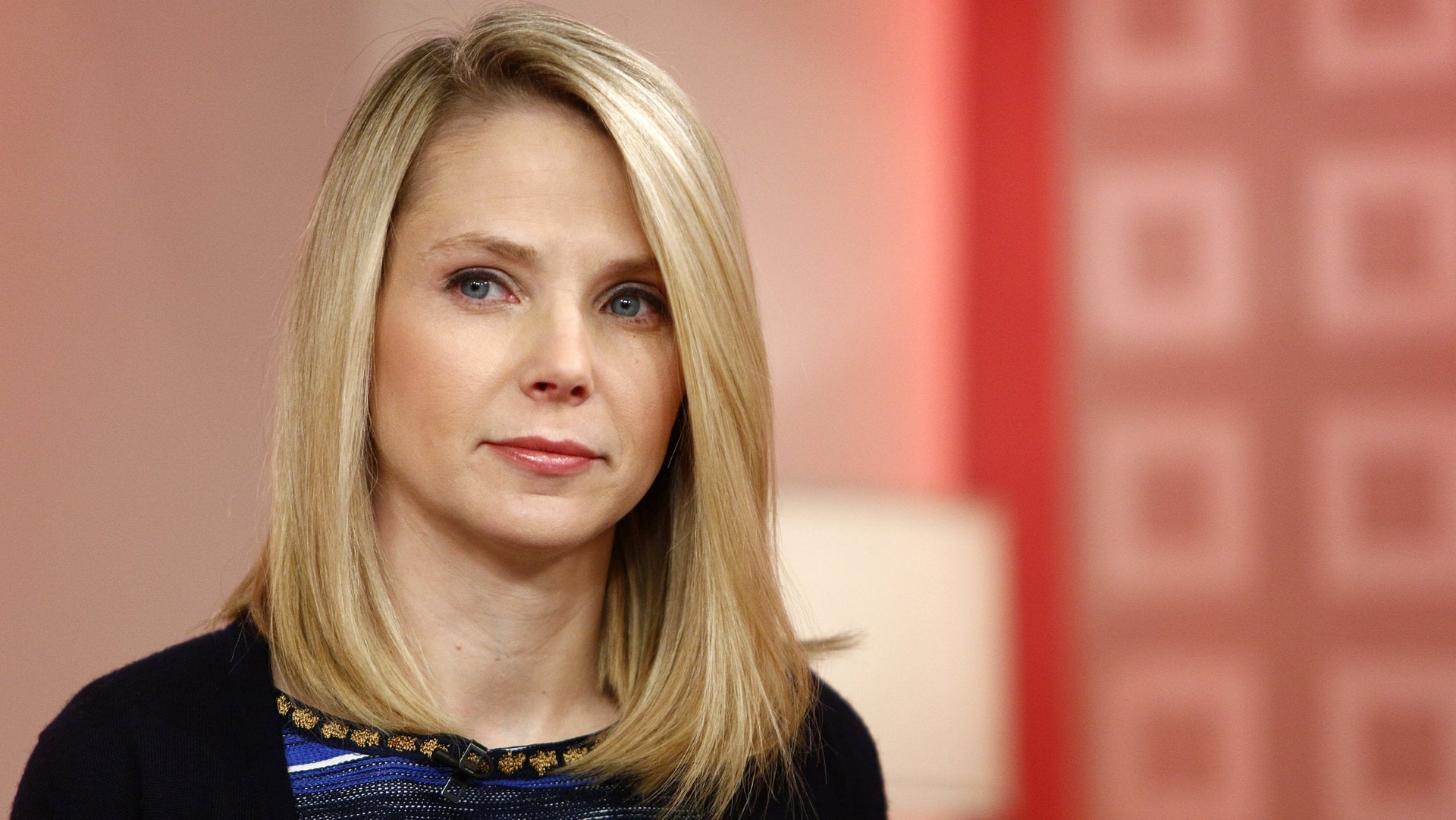Marissa Mayer raises the stakes by offering Yahoo dads eight weeks of paid paternity leave
Marissa Mayer took a lot of flak when she nixed telecommuting at Yahoo yet built a private nursery for her own baby next to her office, on the heels of her earlier statement that she intended to work through a meager two-week maternity leave.


Marissa Mayer took a lot of flak when she nixed telecommuting at Yahoo yet built a private nursery for her own baby next to her office, on the heels of her earlier statement that she intended to work through a meager two-week maternity leave.
This week, however, she announced a decidedly family-friendly policy for Yahoos who become parents: doubling paid maternity leave for mothers (from eight to 16 weeks) plus granting eight weeks for fathers. New parents also can expect to receive a gift of $500 to welcome baby and spend on things like groceries, babysitters, house cleaning, and laundry.
The policy sends the message that Yahoo seeks to keep up with its Silicon Valley peers—especially Google and Facebook—in the competition to hire and retain top talent. It also signals that Marissa Mayer realizes not every working parent, even super-smart Yahoo engineers, possesses her super-human drive, so Yahoo will try to be one of those great places to work—for both moms and dads of newborns.
The dad part of the policy merits notice. It appears Mayer absorbed one key response to Facebook CEO Sheryl Sandberg’s command for women to “lean in” to their jobs and careers. Dads need to lean in at home and share diaper duty, said mothers, journalists, and scholars. That would encourage equally shared parenting particularly and gender equality generally.
The new Yahoo policy holds potential not only to change a father’s behavior during the eight weeks he spends with the baby while on paternity leave, but also to inch the country toward parity between the sexes in parenting. Catherine Rampell, in The New York Times, explains how a family-friendly policy can potentially change social expectations and norms about acceptable “father” and “mother” behaviors:
One area where there seems to be a lot of potential is paternity leave, which still has a stigma in both the United States and Europe. To remedy this bad rap, countries like Sweden and Norway have recently introduced a quota of paid parental leave available only to fathers. If dads don’t take it, they’re leaving money on the table. In Germany and Portugal, moms get bonus weeks of maternity leave if their husbands take a minimum amount of paternity leave. All these countries have seen gigantic increases in the share of fathers who go on leave.
This might not sound like such a big deal, but social scientists are coming around to the notion that a man spending a few weeks at home with his newborn can help recast expectations and gender roles, at work and home, for a long time. A striking new study by a Cornell graduate student, Ankita Patnaik, based on a new paid paternity-leave quota in Quebec, found that parents’ time use changed significantly. Several years after being exposed to the reform, fathers spent more time in child care and domestic work—particularly “time-inflexible” chores, like cooking, that cut into working hours—than fathers who weren’t exposed to the reform. More important, mothers spent considerably more time at work growing their careers and contributing more to the economy, all without any public mandates or shaming.
Even more important, fathers’ heightened engagement with their newborns ignites a process of role evolution. In other words, change behavior first and changes in expectations follow—not just wives’ expectations of husbands but husbands’ expectations of themselves. New roles are “enacted” this way and, at a social system level, new norms emerge. Dads doing more at home—even taking charge—becomes accepted and then expected. All because an employer like Yahoo offered—and dads took—a few weeks of paternity leave.
Nanette Fondas is co-author of The Custom-Fit Workplace. Her work appears in academic journals as well as Psychology Today, Ms., Huffington Post and MomsRising.